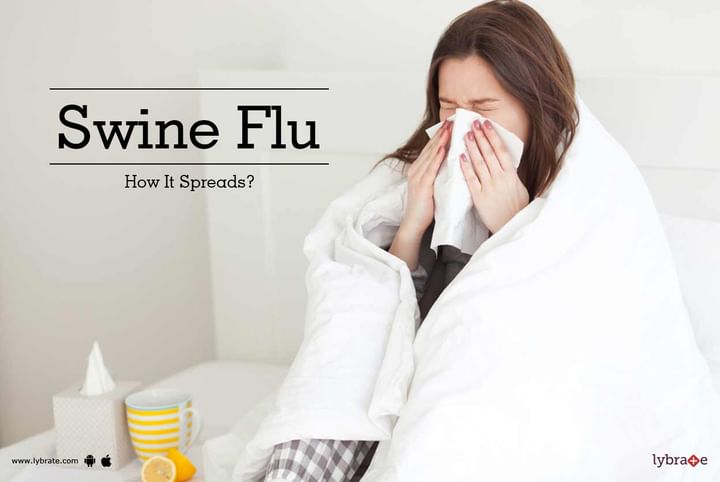Swine Flu - How It Spreads?
Swine flu is the commonly used word for H1N1 influenza virus infection. It is a relatively newer strain of the influenza virus, and is so called because it was originally discovered in people who were in direct contact with pigs. This is not necessarily the case now. Also, one should note that despite the name, it does not spread by eating pork or bacon or ham.
It is very contagious and spreads from person to person very rapidly. Swine flu was big news in 2009 when it was declared a pandemic an is in news again as a number of people have succumb to death in 2017 because of it.
Mechanism of spread: When a person with flu sneezes or coughs, the virus is released into the air, and when another person breathes the virus, they get the disease. It could also be through surfaces like doors or restroom handles which were handled by the infected person. The symptoms take about 7 days to develop, and could be quicker and severe in people with weak immune system
Symptoms: Swine flu resembles the regular flu with generic symptoms including:
- Fever and chills
- Cough and cold
- Sore throat
- Runny nose
- Generalized fatigue
- Body aches
- Vomiting
As it progresses, it can lead to more severe conditions like pneumonia, lung infection, or worsening of asthma.
Testing: A swab test can be done but is not required in all people, except the below
- Extremely young or old people
- People with known weakened immunity
- People with debilitating medical conditions (chronic lung or liver disease, severe diabetes, nervous disorders, etc.)
- People in nursing or assisted living
Treatment:
- When swine flu is detected, one of the following medications is usually given – osteltavimir, peramivir, or zanamivir. The results are best when given in the first 48 hours.
- Antibiotics are not effective as it is a viral disease.
- Cold and fever medications are given for symptomatic relief
- Aspirin should be avoided
Prevention: When there is a high incidence of swine flu in your surroundings, do the following:
- If you are affected, stay indoors to avoid spreading the disease
- Wash your hands regularly with soap and water.
- Contain coughs and sneezes with a kerchief or a tissue so that virus spread is limited
- Avoid touching the eyes, nose, and mouth with likely infected hands
- Keep elderly, pregnant, asthmatics, and young people away from the infected person. They have lower immunity and can contract the infection much faster
- If you are infected, limit your movement in the household and try to stay put in one place
- Caretaking preferably should be done by one person to limit exposure among all the members in the family. If you wish to discuss about any specific problem, you can consult a Pulmonologist.



+1.svg)
